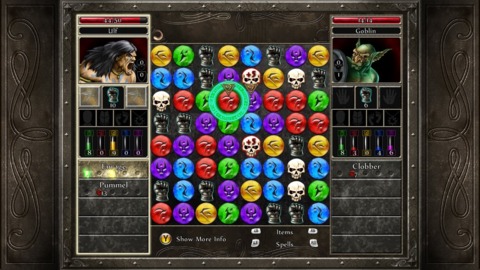Aussie dev industry shrinks 50% in 3 years
New survey finds total of 931 full-time developers in Australia, with more than 1,000 jobs lost since 2008; 126 registered studios in the country.
A new survey has found that Australia's game development industry has shrunk by over 50 percent since 2008. Conducted as part of the Interactive Skills Integration Scheme (ISIS)--a two-year game development industry project that aims to partner interactive media industry professionals with non-entertainment industry sectors--the survey found that there are now 931 full-time game developers working in Australia (not including those working on educational or other serious games) spread throughout six states and 126 studios. This compares with research in 2008 that found the industry had more than 2,000 full-time employees in almost 50 studios throughout the country.
The survey--which gathered data from currently registered game development studios and independent developers throughout Australia--found that Victoria has the largest game development sector, with 410 full-time developers in 44 listed studios, including Blue Tongue, Firemint, and IronMonkey Studios. Brisbane comes in second, with 262 full-time developers in 22 listed studios, including THQ Studio Australia and Sega Studios Australia. Sydney is in third place, with 144 full-time developers at 17 listed studios including Team Bondi and 3rd Sense.
Additional research by Australian and New Zealand game industry site Tsumea--sourced from the Australian Centre for the Moving Image (ACMI) in Melbourne, the Australian Bureau of Statistics, and the Australian Film Commission--shows that in June 2007, the employee headcount was 1,431 in 45 studios, according to the Australian Bureau of Statistics.

ISIS is an initiative funded by the Department of Education, Employment, and Workplace Relations (DEEWR) and supported by the NSW state government. It is headed by project director Justin Brow, whose passion for local game development led him to set up his own consultancy firm, 60Sox.org. Brow is part of a team that created ISIS--a scheme aimed at "integrating" interactive entertainment professionals with companies in non-entertainment industry sectors. Brow says there have been a number of factors which have led to a decline in the number of full-time employees in traditional games development studios throughout Australia.
"The business model of Australian games development has seen a dramatic shift recently due to such factors as the advent of the [Apple] App Store and the increasing profitability of casual games on social media sites such as Facebook," Brow said. "Due to increased competition from around the world, and the high levels of support from governments in competing game development countries such as Canada and China, some of the lastest AAA+ titles have not come to our shores. This has resulted in the closure of several of our biggest studios and a need for local developers to diversify their skills more broadly than the entertainment sector, into areas such as branded interactive media content and serious games."
"This shift in workforce has certainly had an effect on the figures of full-time staff at traditional game development studios, but I wouldn’t suggest there are less people engaged in this sector than there was before in Australia--while it’s hard to quantify, one would have to think there’d be far more people engaged professionally in interactive media industries than ever before. Australia can offer a lot when it comes to creativity, innovation, technology and business management--just look at local developers like Halfbrick and Firemint, who are leading the pack when it comes to iPhone games. I think there is a pretty strong future for others following their example. The interactive media industry is a huge growth market, and it's only going getting bigger; the ways we interact with businesses and each other in the future is all going to have some element of interactive media built into it, because this will make communication, interaction and transaction all that more intuitive and engaging. That's what games professionals can offer to non-entertainment industry sectors--this 'stickiness' and compulsion to try again, and that's what we’re investigating through ISIS."
Six months into the two-year program, Brow and his team have begun preliminary research with the aim of making it a success. Part of this research to date includes a curriculum review, which looks at the 150 or so video game courses offered by Australian educational institutions and how they can be bettered through things like student placements and work experience in game development studios; and international case studies on serious games initiatives looking at sectors such as health, agriculture, and education. Throughout this research, Brow has also sought the help of local and international business leaders and game industry professionals who will serve as advisories throughout the duration of the ISIS program, including Tony Reed, president of the Game Developers' Association of Australia (GDAA), and Steve Fawkner, head of Puzzle Quest developer Infinite Interactive, as well as representatives from Screen NSW and other related organisations.
"We're finalising the criteria for our host organisations and for our interactive media teams," Brow said. "We are looking at teaming up a producer, designer, and programmer per team and 'integrate' these teams into a host organisation in order to explore innovative interactive media solutions to current practices. So we have the interactive media professionals on one side and the other industries on the other. I'm interested in working out how these two sides can communicate and work together."
"[ISIS] is about providing broader opportunities for people in Australia with interactive media skills through encouraging other industry sectors to get more involved in these digital industries. There is no reason why we cannot be a leading light in the serious games market in the short-mid term."
Got a news tip or want to contact us directly? Email news@gamespot.com
Join the conversation